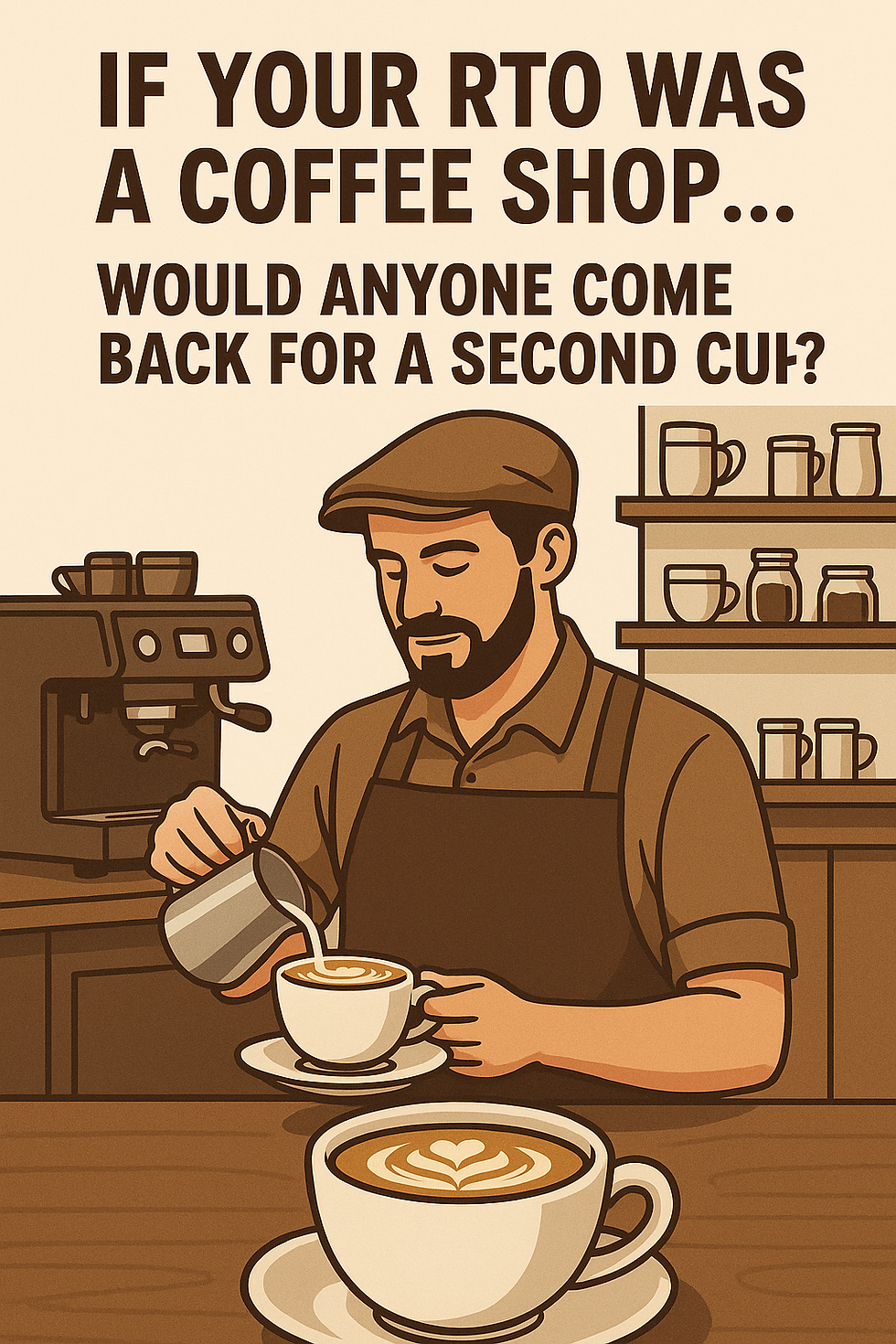What do RPL and good coffee have in common?
- Specialised VET Services

- Aug 10, 2025
- 3 min read

If your RTO was a Coffee Shop… Would anyone come back for a second cup?
Let’s imagine for a moment that your RTO is a bustling coffee shop.
Now, in the coffee world, reputation is everything. People don’t come back for burnt
beans, lukewarm flat whites, or a barista who doesn’t know the difference between a
piccolo and a long mac topped up. They return for great coffee; consistently made,
personalised to taste, and delivered by someone who knows their craft.
So, ask yourself this:
If your RTO was a coffee shop, what kind of coffee are you serving?
The Barista is your Assessor
In this analogy, your assessors are the baristas. They’re the face of your service and
the hands behind the product. When it comes to RPL (Recognition of Prior
Learning), your assessor isn’t just pouring a standard flat white, they’re crafting a
complex brew, tailored to the learner’s experience, unique background, and
evidence.
A great barista doesn’t just follow a recipe, they understand coffee! They can
speak the language of their customers, make educated suggestions, and cater to
individual preferences (yes, even that soy milk, half-shot, decaf magic with a dash of
cinnamon).
Likewise, a skilled RPL assessor doesn’t just tick boxes on a form. They listen. They
investigate. They contextualise. They assess. And they do it with integrity, clarity, and
skill.
Ordinary Beans, Ordinary Coffee
You can offer RPL, just like any café can technically make coffee, but if your
assessors aren’t trained, experienced, and supported in the RPL process, all you’re
serving is a cup of.... bitter experience.
Untrained assessors often:
Reduce RPL to a desk audit.
Rely too heavily on paperwork, ignoring other valid evidence.
Struggle to interpret performance evidence within context.
Fail to lead a candidate-centred conversation.
Leave candidates confused or overwhelmed.
And what does that result in?
❌Ordinary coffee.
❌Ordinary service.
❌A reputation no one recommends.
You can’t fake a good brew, but you can smell a great one from down the street!
Here’s the truth: You can buy the best machine, order the finest beans, and paint
your café the perfect Instagrammable shade of sage green, but without a good
barista, it all falls flat (no pun intended for those who enjoy a flat white).
In the same way, having RPL kits, policies, and procedures means little if your
assessors aren’t confident and competent in applying them.

RPL assessors need to be trained in:
Candidate-centred approaches
Effective questioning techniques
How to interpret and validate different forms of evidence
Mapping real-world experience to unit requirements
Maintaining compliance without losing authenticity
It’s a craft. It’s an art. And it’s essential.
So, what’s brewing in your RTO?
Now might be the time to take a hard look at how your RPL is being delivered.
Are your assessors just pouring from a pre-set jug? Maybe even simply pouring hot water on the instant granules? Or are they artisans of their trade - engaging with candidates, drawing out the richness of their experience, and serving up an experience that meets the highest standards?
Because when RPL is done well, it’s like that first sip of perfect coffee - smooth,
strong, and exactly what the customer needed.

If it's time to consider embedding artisan-level expertise in your RTO, but you're not sure where to start, the Advanced RPL Assessor guided learning programs for sustained, in-depth understanding of better (not bitter!) RPL is your first stop.
These are courses that you can undertake to learn more about how to create RPL Kits that are fit for purpose, user friendly and can effectively support RPL candidates, no matter their circumstances or choice of brew. As part of the course, you also learn how to cluster assessments properly.
Learn more and register for a course, here.
- AI-assisted article from guest writer Wendy Cato


